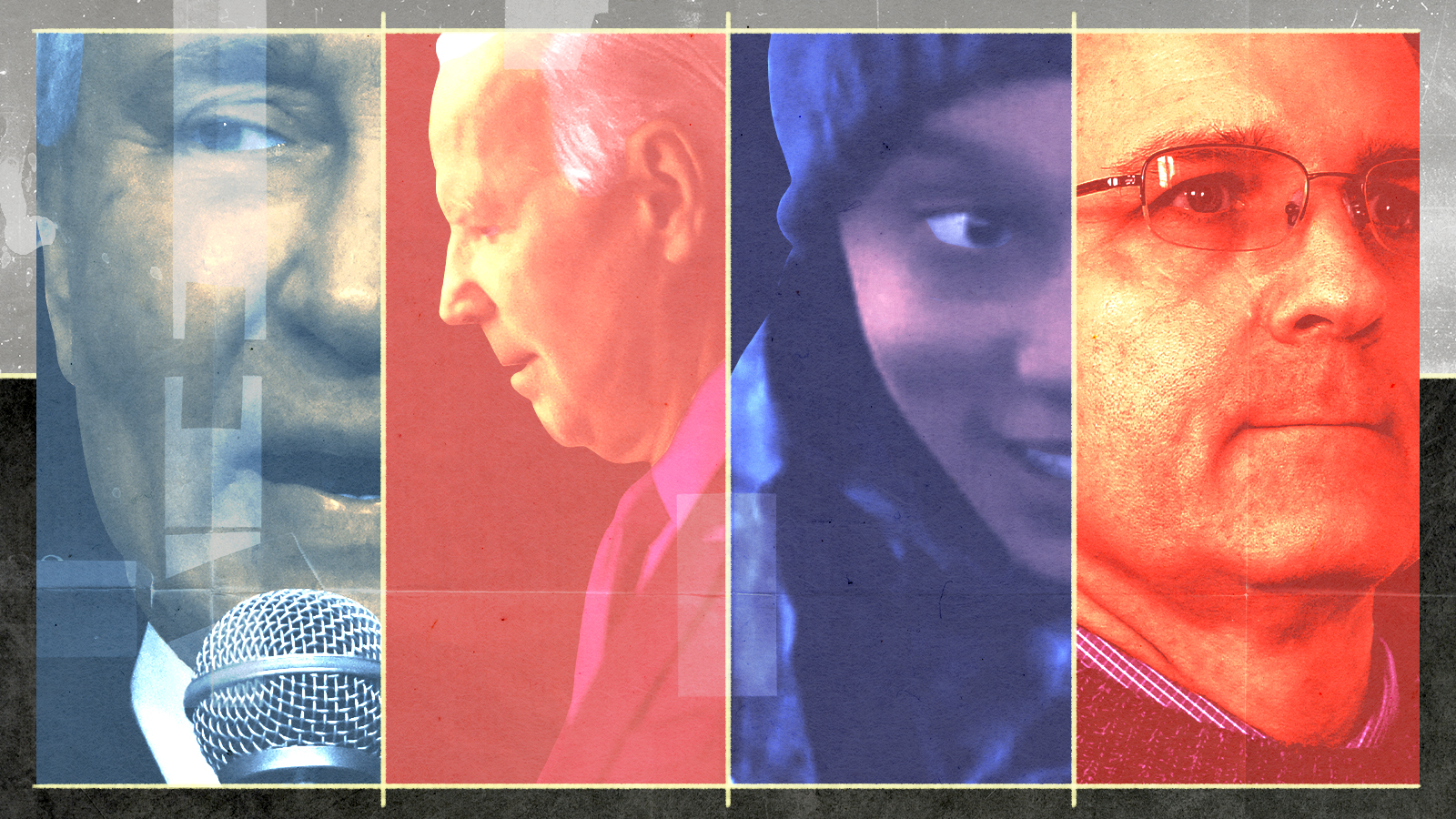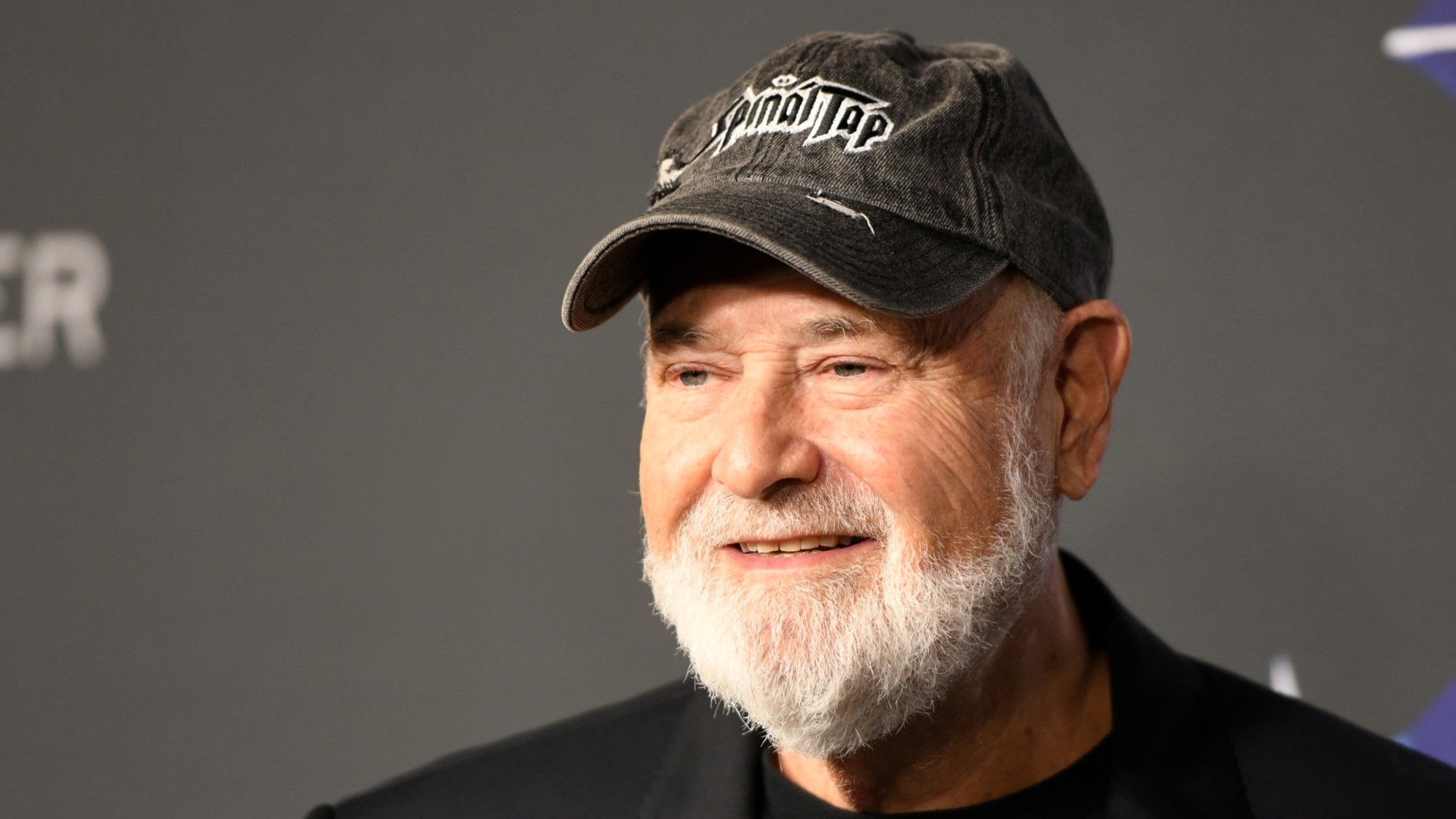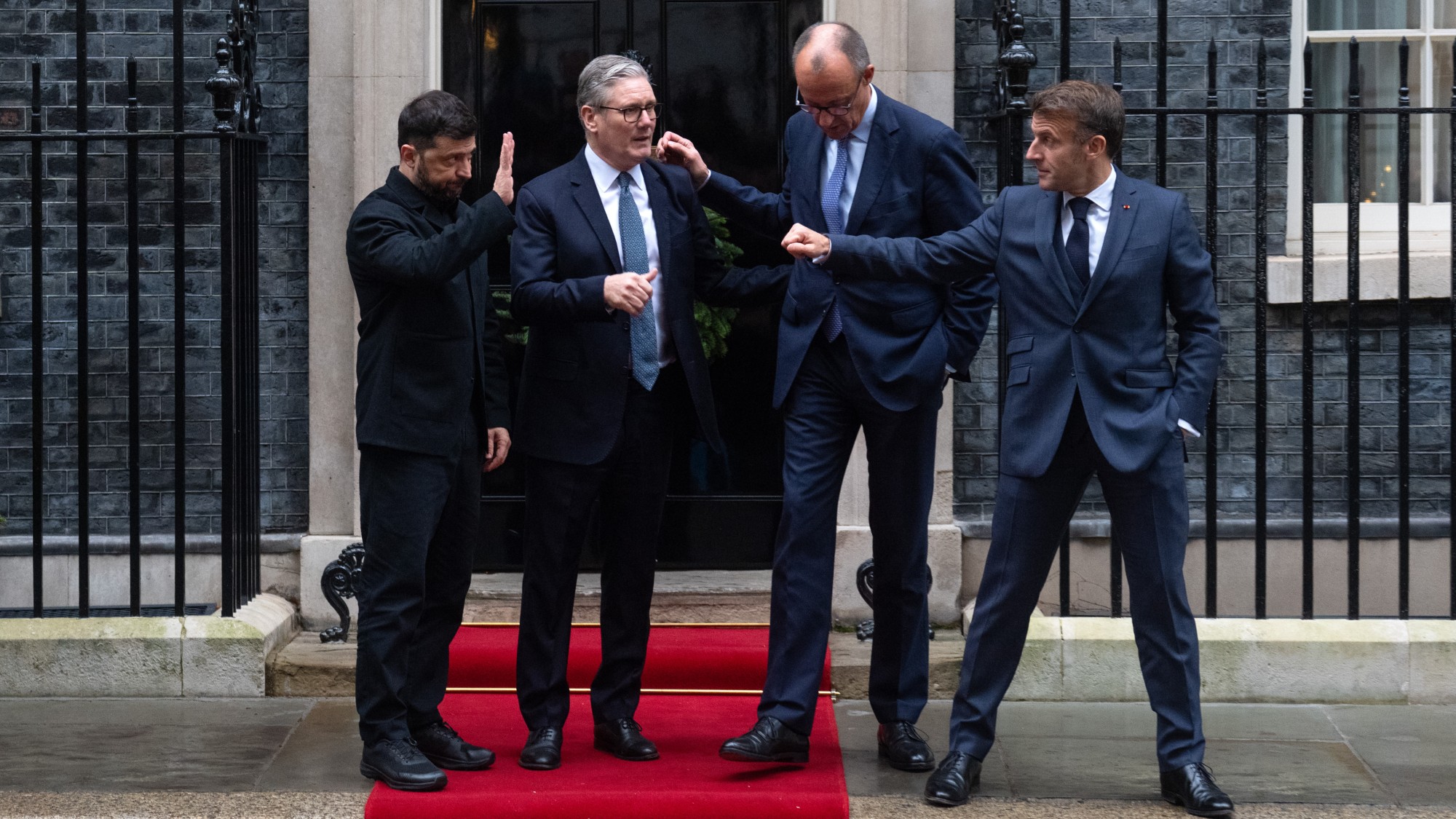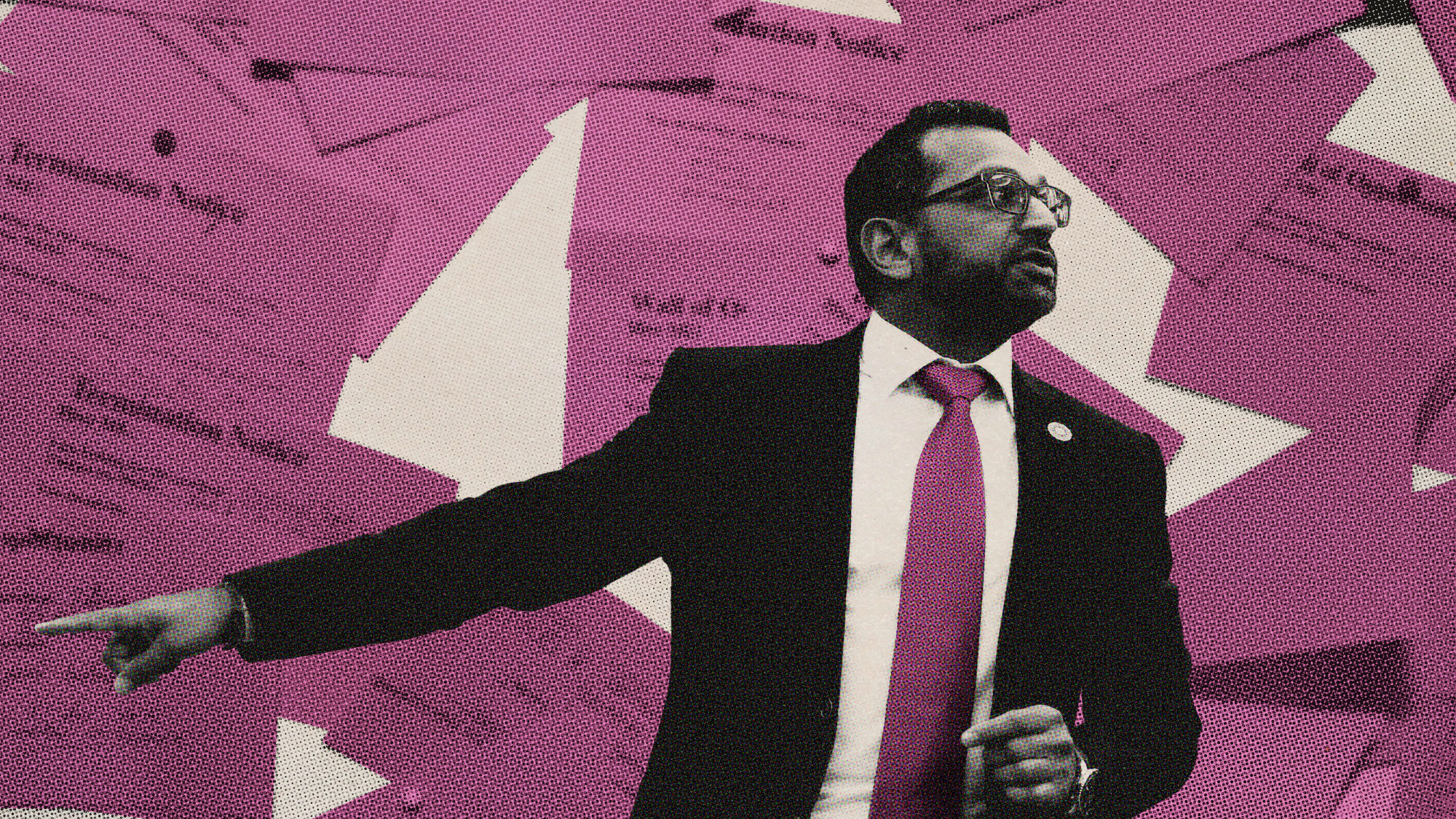The Griner prisoner swap: Did Biden make a bad deal?
The sharpest opinions on the debate from around the web


A free daily email with the biggest news stories of the day – and the best features from TheWeek.com
You are now subscribed
Your newsletter sign-up was successful
The Biden administration announced this week that it had successfully negotiated the release of WNBA player Brittney Griner from Russia through a prisoner swap for convicted arms dealer Viktor Bout. The public response to Griner's release has been mixed, with some wondering if Russian President Vladimir Putin took advantage of the U.S. in the deal. Others questioned why Griner, a celebrity athlete, was released before Paul Whelan, who's been detained in Russia for nearly four years. Still others believe that setting Bout free poses a severe threat to the nation, and that her release could potentially even send a dangerous message to America's enemies.
Should the Biden administration be applauded for helping a confined American come home, or did the U.S. get a raw deal?
Brittney Griner's release should be unequivocally celebrated
After five months of tense negotiations, the news of Brittney Griner's release rightfully garnered praise and celebration, the editors of The Wall Street Journal argue, because "there should be relief when any American is sprung from hostile and unjust captivity." More importantly, Griner's release could actually signal to America's enemies that the U.S. will not disregard citizens who have been unfairly detained. "What matters is the recognition that a U.S. passport means something," The Wall Street Journal writes. "The world becomes a much more dangerous place for all Americans when bad foreign actors think they can get away with abusing any U.S. citizen."
The Week
Escape your echo chamber. Get the facts behind the news, plus analysis from multiple perspectives.

Sign up for The Week's Free Newsletters
From our morning news briefing to a weekly Good News Newsletter, get the best of The Week delivered directly to your inbox.
From our morning news briefing to a weekly Good News Newsletter, get the best of The Week delivered directly to your inbox.
Stephen Collinson of CNN concurs, explaining that Biden's decision to move forward with the swap "represented a humane resolution to a painful dilemma." He argued, "the Biden administration demonstrated the gulf between its moral grounding and that of Russian President Vladimir Putin, who is currently demonstrating his inhumanity on another front, with a fearsome assault on Ukrainian civilians."
Though Lindsay Gibbs noted in her Substack Power Plays that it is "very understandable if the thought of swapping Griner — who allegedly had less than one gram of hashish oil in her bag when detained in Russia — with a guy nicknamed 'the merchant of death' makes you uncomfortable," arguing about whether the trade was fair or not misses the point. "It is, in no way, a 'fair' trade," Gibbs goes on. "But a 'fair' trade would require two good-faith actors. And that is not the reality of negotiating with Putin."
Paul Whelan shouldn't have been left behind
Sure, "Joe Biden deserves credit for his commitment to bringing [Griner] home," write the editors of Bloomberg. But "[t]hat doesn't mean the deal to secure her freedom was a good one." In order to earn Griner's release, the Biden administration "dropped its insistence that the Kremlin include Paul Whelan, the former U.S. Marine serving a 16-year sentence for alleged espionage — a concession that Putin will undoubtedly use as a propaganda tool to bolster his flagging image at home."
Many Republican lawmakers echoed the sentiment. "Swapping a celebrity basketball player for the Merchant of Death — while excluding a Marine and a history teacher — is patently offensive and exposes the Biden administration's deeply rooted disdain for everyday Americans," Rep. Guy Reschenthaler (R-Pa.) said in a statement. "It is clear Whelan and [Marc Fogel, an American detained in Russia on drug charges] are afterthoughts to this administration, who care more about celebrity admiration and wokeness than returning all Americans safely to their families." Sen. Rick Scott (R-Fla.) echoed that while he was "glad Brittney is coming home," the decision to leave Whelan out of the deal was "unforgivable."
A free daily email with the biggest news stories of the day – and the best features from TheWeek.com
The New York Post editorial board went even further, calling it "an outrage" that Washington traded Bout "without even also winning the release" of Whelan. Biden's deal is "fresh ugly proof of how weak the United States has become on the world stage, thanks significantly to the doddering foreign policy emanating from the White House."
Setting Viktor Bout free endangers Americans
Viktor Bout had been serving 25 years in the U.S. on "charges of conspiring to kill Americans, delivery of anti-aircraft missiles, and aiding a terrorist organization," Politico notes, and as one senior Defense Department official told the publication, "I think there is a concern that [he will] return to doing the same kind of work that he's done in the past."
Further, the prisoner swap could set a dangerous precedent that could encourage our enemies to take more hostages, the editors of the National Review stress. "Trading hard-core criminals like Bout for regular civilians will signal to foreign adversaries that Washington will reward their hostage-taking with releases of higher-level prisoners, or a greater number of them," the board writes.
Robert Zachariasiewics, a former DEA agent who was part of the effort to arrest Bout, agrees. "I think that we just encouraged false detentions and hostage-taking all over the world," said Zachariasiewics in an interview with CBS News. "I think we just sent the message out that is good business to have an American citizen in your back pocket for that day you need a bargaining chip."
Theara Coleman has worked as a staff writer at The Week since September 2022. She frequently writes about technology, education, literature and general news. She was previously a contributing writer and assistant editor at Honeysuckle Magazine, where she covered racial politics and cannabis industry news.
-
 What to know before filing your own taxes for the first time
What to know before filing your own taxes for the first timethe explainer Tackle this financial milestone with confidence
-
 The biggest box office flops of the 21st century
The biggest box office flops of the 21st centuryin depth Unnecessary remakes and turgid, expensive CGI-fests highlight this list of these most notorious box-office losers
-
 What are the best investments for beginners?
What are the best investments for beginners?The Explainer Stocks and ETFs and bonds, oh my
-
 Migrant death in ICE custody ruled homicide
Migrant death in ICE custody ruled homicideSpeed Read Geraldo Lunas Campos, 55, died of asphyxia, the coroner said
-
 Prosecutors quit as DOJ pushes probe of Good widow
Prosecutors quit as DOJ pushes probe of Good widowSpeed Read At least six prosecutors have resigned in Minnesota
-
 Inside Minnesota’s extensive fraud schemes
Inside Minnesota’s extensive fraud schemesThe Explainer The fraud allegedly goes back to the Covid-19 pandemic
-
 Who is paying for Europe’s €90bn Ukraine loan?
Who is paying for Europe’s €90bn Ukraine loan?Today’s Big Question Kyiv secures crucial funding but the EU ‘blinked’ at the chance to strike a bold blow against Russia
-
 ‘It’s another clarifying moment in our age of moral collapse’
‘It’s another clarifying moment in our age of moral collapse’Instant Opinion Opinion, comment and editorials of the day
-
 Will there be peace before Christmas in Ukraine?
Will there be peace before Christmas in Ukraine?Today's Big Question Discussions over the weekend could see a unified set of proposals from EU, UK and US to present to Moscow
-
 Constitutional rights are at the center of FBI agents’ lawsuit
Constitutional rights are at the center of FBI agents’ lawsuitIn the Spotlight The agents were photographed kneeling during a racial justice protest
-
 Moscow cheers Trump’s new ‘America First’ strategy
Moscow cheers Trump’s new ‘America First’ strategyspeed read The president’s national security strategy seeks ‘strategic stability’ with Russia
